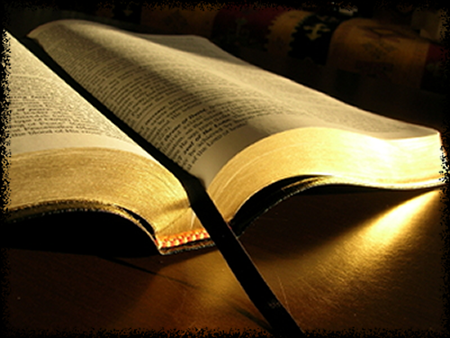
Any meaningful understanding of the theological differences between Catholics and Protestants must begin with a grasp of the far-reaching dissimilarity in the understanding of authority. Protestants hold that divine revelation comes exclusively through the Bible. Therefore, they reject the need of any interpretative authority other than the Bible. This doctrine is expressed by the Latin phrase sola scriptura, which literally means “by the Bible alone.” Sola scriptura is so important that the Protestant apologist James White calls it “the ‘formal’ principle of the Reformation, that which gave rise to the rest.”1
Protestantism stands or falls on this foundational element – the Bible alone.
Because Protestants adhere to the Bible alone idea, sola scriptura, the theological differences among Protestants becomes relatively unimportant because these disagreements do not endanger the foundation upon which all Protestant denominations are built. These differences are often merely viewed as “opinion.” I experienced this a few years ago in a discussion with a large group of Baptists. When it came to the question of a Christian losing his or her salvation by sin, the group was sharply divided. One side said, “Yes,” and the other said, “No.” Each side held firmly to its opinion, which they believed was solidly based on the Bible. Yet their contradictory opinions are accommodated because they were built on the same false foundation, sola scriptura.
However, if either side believed that sola scriptura was a false, unbiblical principle, that would be earth shaking because it would rip out the foundation from under all Protestant churches causing the whole edifice to collapse. When sola scriptura is challenged, the entire Protestant worldview is threatened. Scott Hahn recalls how this put him in a state of turmoil when as a young Presbyterian minister he was teaching a course on John’s Gospel. He was asked:
“Professor Hahn, you’ve shown us that sola fide [by faith alone] isn’t scriptural—how the battle cry of the reformation is off-base when it comes to interpreting Paul. As you know, the other battle cry of the Reformation was sola scriptura: the Bible alone is our authority, rather than the Pope, Church councils or Tradition. Professor, where does the Bible teach that ‘Scripture alone’ is our sole authority?”2
This was a moment of truth that turned Scott’s life upside down and eventually led him into the Catholic Church:
“I looked at him and broke into a cold sweat. I had never heard that question before. In seminary I had a reputation for being a sort of Socratic gadfly, always asking the toughest questions, but this one had never occurred to me. I said what any professor caught unprepared would say, ‘What a dumb question!’ As soon as the words left my mouth, I stopped dead in my tracks, because I’d sworn that, as a teacher, I would never say those words … I felt the ground shaking, as though somebody was pulling the carpet out from under my feet.”3
This incident led to painful questioning. At the age of twenty-six Scott was offered a wonderful job, a full-time position as dean of a Protestant seminary. He turned it down because he was questioning the foundation of his Protestant belief system.
Sola scriptura is the vital issue to discuss with Protestants. If sola scriptura is false, all Protestant religions are false. If sola scriptura is true, then Protestantism stands and the Catholic Church falls. Therefore, it is important to begin this investigation with a clear understanding of the meaning of sola scriptura as defined by Protestant scholars….
**To get full-access to The Fullness of Truth, please subscribe. A lifetime subscription is only $9.99. Click here to subscribe**